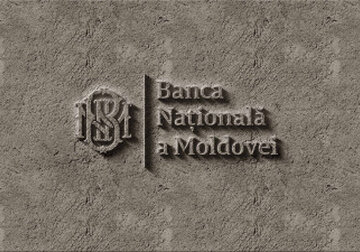
The National Bank of Moldova (NBM), on the IMF recommendation, will make a number of amendments to the Regulation on Liquidity Assistance in Emergency Situations.
In particular, the National Bank of Moldova submitted for public consultations from July 29 a draft resolution of the NBM Executive Committee regarding the “Amendments to Certain Normative Acts of the NBM”. The National Bank clarifies that the elaboration and adoption of the draft resolution is due to the need to adjust, in accordance with the recommendations of the IMF, the Regulation on Assistance to Liquidity in Emergency Situations and the Norms for Assessment of Assets adopted by the National Bank of Moldova as collateral when issuing loans to banks, approved by the decisions of the NBM Executive Committee. It should be noted that in November 2020, the National Bank received technical assistance from the IMF to complete and consolidate the operational framework related to the provision of liquidity assistance in emergency situations. As a result, in accordance with the recommendations of the IMF experts, it is planned to make a number of amendments to the Regulation on Liquidity Assistance in Emergency Situations and the Norm on the Assessment of Assets accepted by the National Bank of Moldova as collateral when issuing loans to banks. The amendments, among other things, clarify the concept of "solvent and viable bank", which will mean "a bank that meets the minimum requirements for its own funds and is able to generate acceptable income and profit in the next 12 months." It is proposed that when assessing the impact that the failure to provide liquidity assistance may have on the stability of the financial system, the National Bank will also assess the potential risks of its "infection". In addition, it will be stipulated that the initial period for which liquidity assistance is provided is up to 2 weeks with the possibility of its extension, including with an increase in the amount of necessary assistance, at the request of the bank, for other periods of 2 weeks, but not more than 3 months or, in exceptional cases, for a period not exceeding 1 year from the date of provision, in accordance with the conditions established by the Executive Committee of the National Bank. The current version stipulates that the period for which the liquidity assistance is provided is up to 3 months with the possibility of its extension, in an exceptional manner, for a period not exceeding one year from the date of provision. The new amendments imply that the adjusted value of pledged assets must cover the assistance provided and the corresponding interest in the proportion determined by the National Bank based on an assessment of the associated risks, but not less than 100%. The National Bank will have the right to decide which assets will be taken in priority order to ensure the provided liquidity assistance. It will be clarified that monetary claims against individuals engaged in entrepreneurial or professional activities can also be accepted as collateral. Banks will also be required to provide a forecast of inflow and outflow of funds for the next 2 weeks simultaneously with the request to the NBM for assistance in liquidity. At the same time, the receiving bank will provide the National Bank with information on the actual cash flows for the previous working day in the format established by it on a daily basis. The possibility of extending / increasing the volume of liquidity assistance will also be discussed, subject to the payment of interest for the previous period and the return of the total amount of the initial assistance provided and the additional one within the new agreed period specified in the contract. It is also stipulated that during the period of using liquidity assistance, the National Bank will request from the bank at least once every 2 weeks information on the implementation of measures provided for by the financing plan to resolve liquidity problems, as well as reports on the targeted use of liquidity assistance funds. It will be clarified that the levels of the adjustment of the value of assets accepted as collateral, with the exception of category I assets, are the minimum levels, while the National Bank has the right to apply an additional margin of the adjustment of the value, if such measures are necessary to ensure adequate protection of the National Bank against risks. The expected impact of the draft decision of the NBM is to ensure the stability of Moldova’s financial system. Recommendations on the draft resolution of the NBM are accepted until July 12. // 30.06.2021 – InfoMarket







